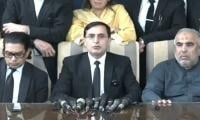Islamabad: Ahtasam Ahmad, Energy Finance Associate at Renewables First has said that despite improvements due to multiple tariff hikes, a World Bank analysis revealed that only 40 per cent of the lowest-income households received 28 per cent of the subsidies, indicating inefficiency.
Mr Ahtasam said this during a policy dialogue on “Fiscal strategies for energy sector FY25: budgetary allocations and the tariff dynamics” organised here by Pakistan Renewable Energy Coalition in collaboration with Sustainable Development Policy Institute (SDPI).
Mr Ahtasam said that around 8% of overall current expenditure with approximately 87% directed to the power sector predominantly for tariff differential subsidies. He argued that in a fiscally constrained environment, these blanket subsidies are counterproductive and fail to achieve their intended purpose effectively. He advocated for targeted subsidy programs like the Benazir Income Support Program (BISP) over blanket subsidies, as targeted programs are more effective in utilising funds. He also stressed the need to redirect inefficient subsidy spending towards productive avenues such as renewable energy financing, noting that renewable utility-scale financing stalled due to the absence of subsidised financing, resulting in no financial closures in the last fiscal year. He called for a rational approach to budgeting, highlighting that many of the subsidies outlined in the budget are unlikely to materialise and that the ambitious nature of the budget could lead to cuts in the Public Sector Development Program (PSDP).
Dr Abid Qaiyum Suleri, Executive Director, Sustainable Development Policy Institute, proposed several approaches to address these issues, including tariff rationalisation to increase electricity utilisation, transitioning to clean energy sources and diplomatic negotiations for international arbitration and commercial dispute resolution. He emphasised that the cost of transitioning to green energy should not fall solely on lower and middle-class consumers, but rather through targeted subsidies for green energy solutions.
Muhammad Badar Alam, Chief Executive Officer, PRIED, criticised the government's contradictory actions in managing the energy sector and the economy. He called for a reconsideration of supply-side economics and a more transparent and inclusive policymaking process. Moreover, he stressed the need to address political issues alongside economic and energy problems and highlighted the importance of engaging with international development partners, including IMF and World Bank, from a position of strength, not submission.
Dr Khalid Waleed from SDPI noted mixed reactions from stakeholders. He highlighted the need for a homegrown agenda to reduce government intervention and shift towards a market-driven economy. He stressed the importance of targeted subsidies and energy governance, particularly in addressing rising tariffs and stagnant industrial growth. He also pointed out the necessity of early retirement of thermal power plants to address capacity charges and reduce tariffs. Ubaid Ur Rehman Zia from SDPI and Muhammad Mustafa Amjad and Muhammad Basit Ghaur, from Renewables First also addressed the gathering.
A representational image showing a person handcuffed and standing behind bars. — AFP/FileRawalpindi:Rawalpindi...
A large number of beggars sitting on the roadside waiting for alms. — APP/FileIslamabad:The district administration...
CDA Chairman Muhammad Ali Randhawa chairs a meeting on October 21, 2024. — Facebook@cda.isb.pkIslamabad:Capital...
This image shows Rawalpindi Police officials interacting with each other on November 30, 2023. — Facebook/Rawalpindi...
Representational image shows workers washing 300 KWP solar PV system in Multan, on December 4, 2022. —...
A view of the National Assembly session underway on April 10, 2023. — X/@NAofPakistanIslamabad:A significant...







